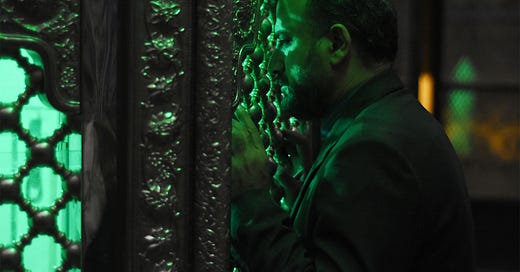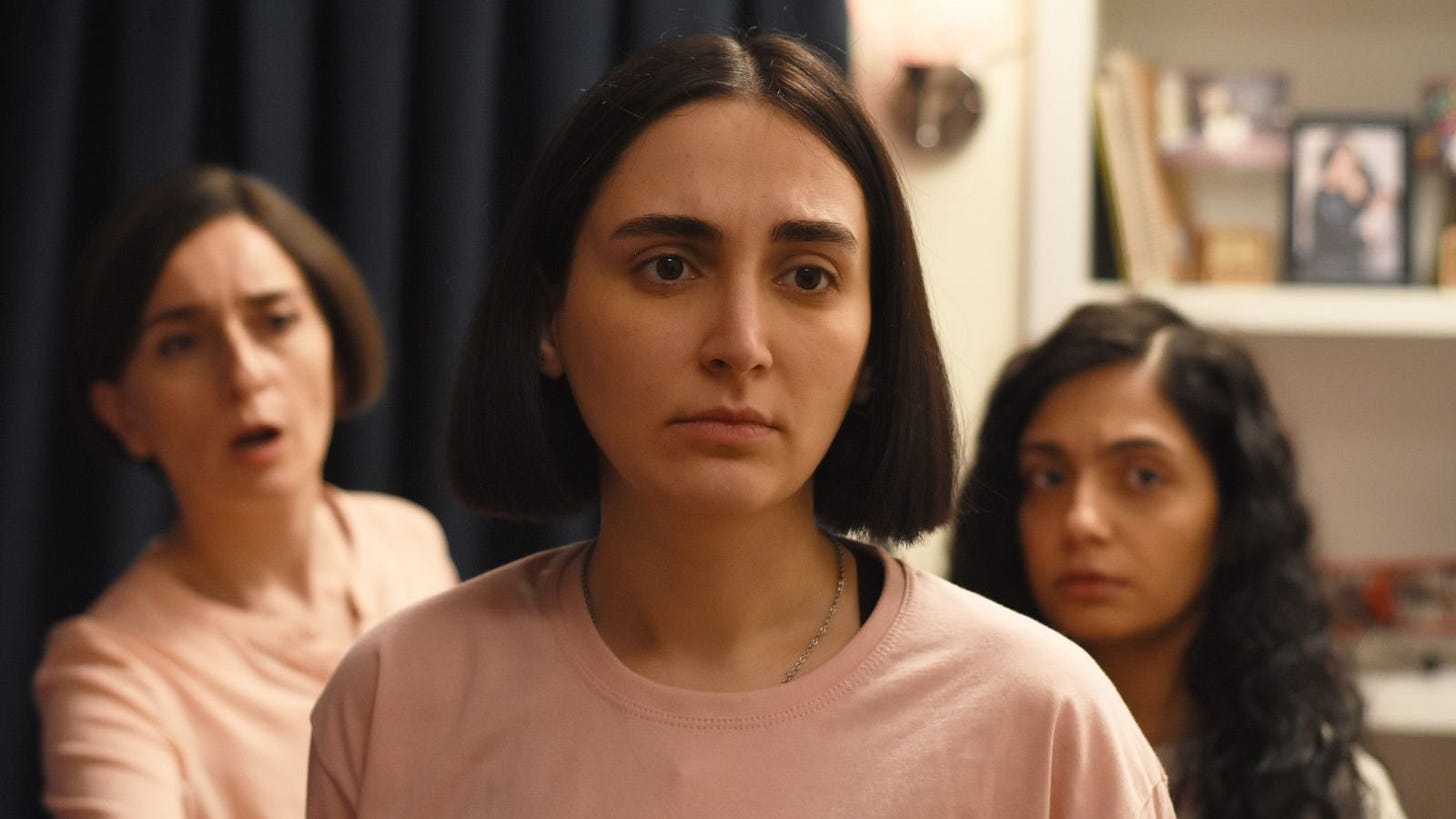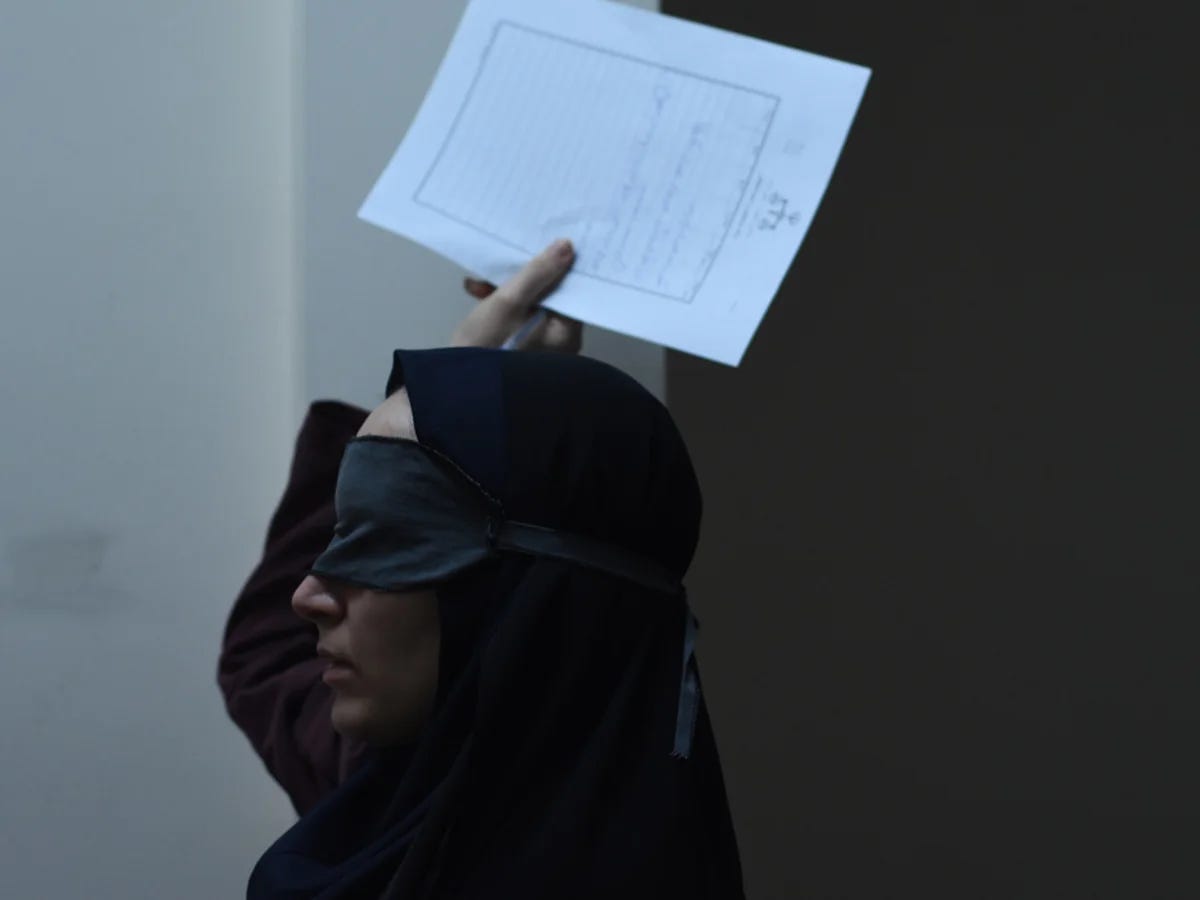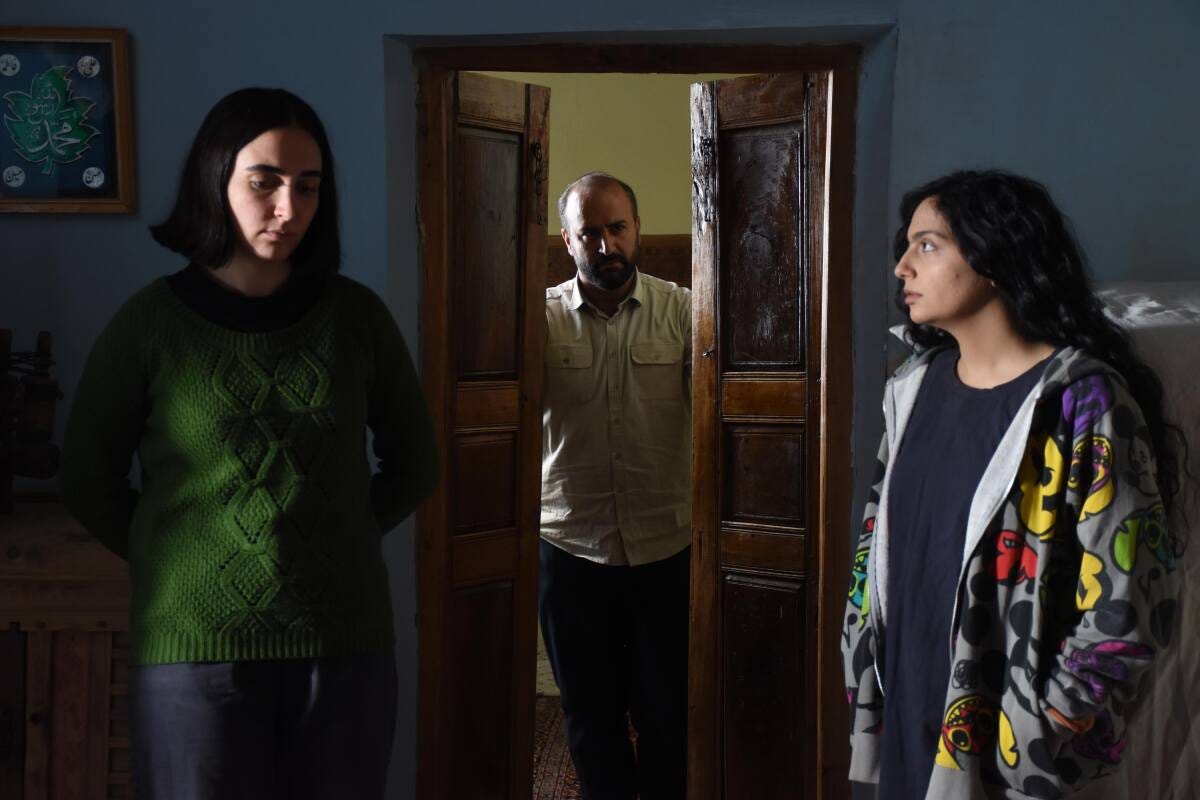The bravest film of the year comes by way of Iranian filmmaker Mohammad Rasoulof. Along with his cast and crew, Rasoulof was banned from leaving Iran and sentenced to eight years in prison following the announcement of The Seed of the Sacred Fig’s selection at the Cannes Film Festival. Pressured to withdraw the film, Rasoulof and company did not relent. Through a painstaking process, he and most of the cast and crew fled Iran largely by foot to Germany for safe-haven. Filming The Seed of the Sacred Fig secretly, Rasoulof’s film centers around a fictional narrative set during the 2022-2023 Masha Amini protests in Iran. It follows the family of an Islamic Revolutionary Court Judge as their family breaks apart at the seams like the country around them. As someone who vaguely keeps up with international politics and has little exposure to Iranian cinema, this film was a true wake-up call. So, it raises an important question: does The Seed of the Sacred Fig belong in the pantheon of Iranian cinema? Or is it simply a vehicle for political commentary (albeit brave)?
What’s it all about?
The Seed of the Sacred Fig follows Iman (Missagh Zareh), a devout lawyer promoted to a post as an investigative judge in the Revolutionary Court, only to discover that his job is merely to rubber-stamp death sentences handed down by the regime. As protests rage across the country, his once-harmonious home becomes a battleground, with his wife, Najmeh (Soheila Golestani), who shares his conservative beliefs, urging their daughters, Rezvan (Mahsa Rostami) and Sana (Setareh Maleki), to stay away from their revolutionary friends. However, the two young women struggle to reconcile their values with the horrors unfolding around them. Mistrust and paranoia seep into their household as Iman’s oppressive rule begins to alienate his family. When his government-issued handgun mysteriously disappears, his growing suspicions turn inward, setting off a chain of events that leads to a simmering domestic conflict that mirrors the nation’s larger turmoil.
An Impossible Task
As mentioned, I have very little exposure to Iranian cinema so I can’t tell whether The Seed of the Sacred Fig aligns stylistically or technically with other Iranian films. I barely have a frame of reference. Are internationally recognized Iranian films this daring and political? I don’t know. So with a film this politically-targeted, more concerned with getting to the finish line than making the best possible movie, it presents a challenging task for the critic. Treat it like any other film? Or evaluate the film through the context of its arduous production? Some critics may choose the former, but the film’s sociopolitical content moved me enough to largely ignore the major flaws. But, I’ll outline them for the sake of fairness. Firstly, I’m not sure what constraints the production was specifically under once the footage made its way to editor Andrew Bird in Germany, but a majority of the film’s footage looks ungraded. Many shots seem over-exposed and largely unfinished. I also found the melding of documentary footage in the film to be awkward at times. Swaying from family drama to paranoid, heart-pounding thriller, Rasaoulof seems at a loss for what aesthetic he wants the film to possess. There’s neither the exactness of a thriller, the cultivated staging of a drama, nor the experimentation of a verite political film. Granted, films don’t always demand a calculated aesthetic to pull off the requisite emotional power. And, I’m sure the cast and crew had bigger things to worry about than whether their film is stylistically consistent. If the film had more means and support, I’m sure we could have gotten a more ambitious, tonally consistent piece of work that would live up to its nearly three-hour runtime. Flaws aside, Rasoulof still delivers a powerful core message, even if his film remains a moving target for critics.
Takedown of a Regime
Going into the film off the trailer alone, I assumed The Seed of the Sacred Fig was going to be a high-octane procedural thriller set within the Iranian regime. Pretty naive thinking. Instead, Rasoulof cleverly stages the dread of the nation’s widespread oppression in a single household to claustrophobic effect. Typically these kinds of stories would be seen from the “opposition” point of view i.e. the activist, or the prosecuting lawyer. Instead, we get an inside look at the mentality of those who persecute. The first half of the film spends time setting up the daughters’ political growth, as the 2022-2023 protests ignite their own personal rebellion. The unrest is shown through two lenses: Rezvan’s friend Sadaf, who is tragically shot in the face after being incidentally caught in a rally, and the use of social media footage accessed through a VPN, which offers a chilling glimpse into the violent realities of protest. While Rasoulof can’t stage massive protests, these two devices provide a personal touch that the audience can emotionally resonate with. The character of Sadaf is specially handled with such delicate care and humanity. When the daughters, in a last-ditch effort, enlist their conservative mother to help bandage their friend’s wounds, politics momentarily take a backseat. The four women are granted a moment to confront the raw, tragic realities of a morally bankrupt system. Rasoulof doesn’t deal with vague ideas and solutions to solve Iran’s and the globe’s problems at large. Instead, he takes a massive spotlight on the biggest stage of injustice, humanizing the headlines to takedown his home country’s moral failings.
Family Drama Turned Political
As an American, it’s shocking to see the parents deeply conform to the regime, their sense of righteousness blinding them to the harm they cause. Not that blind faith doesn’t exist elsewhere in the world but to see such delusion coming from the so-called “adults in the room” is frightening. Iran is also an interesting case study since it’s one of the few countries where religion is actually manipulated to dictate authoritarianism whereas other leaders use religion merely to co-opt the masses. Here, Islam serves as an active cover for their crimes against the public. While we can understand how people fall into its web, this perfect display of authoritarian brainwashing remains a scary sight. However, once the main conflict with Iman’s gun enters the picture, he turns the government’s tactics on his own family. Here is where Rasoulof masterfully navigates the tension between personal and political as mistrust spreads like poison. It's a stark shift, which some have criticized as too abrupt, but the slow-burn first half sets the stage for a narrative turn that transforms the film into an Iranian (The) Shining, for lack of a better comparison. Seeing the lengths to which Iman (a stand-in for the Iranian regime) will go to uphold his version of the truth—even officially interrogating his own family—forces us to question whether loyalty in an autocracy is truly genuine or simply a product of fear and coercion. The film becomes a searing indictment of oppressive rule, not just as a force that affects the body, but as something that twists minds and families apart. The situation Rasoulof depicts is hardly limited to Iran. There are echoes of Nazi Germany and modern-day China in the way average citizens submit and feel inclined to inform on one's neighbors for preservation’s sake. Rasoulof’s genius lies in using family dynamics as a microcosm for the government, slowly escalating the tension toward an exhilarating third act that makes the audience feel the claustrophobia and inescapability of the Iranian regime, even as the conflict remains domestic.
An Act of Bravery
The Seed of the Sacred Fig is one of the few films that truly embodies the spirit of protest. What Mohammad Rasoulof set out to do was challenge Iran’s atrocities on the biggest stage. While my role as a critic is to judge every facet of a film’s production and compare what they set out to do with what they’ve done, I find that debate rendered insignificant in the face of one of the globe’s most pressing humanitarian crises. At the end of the day, Rasoulof’s film is an act of bravery that was a miraculous feat to pull off. To even make a film is an achievement, but a nearly three-hour slow burn with a stellar third act made in complete secrecy deserves kudos. I urge everybody to seek this film out if they can. It’s an important story that needs to be brought to light in these trying times.









Nice review!